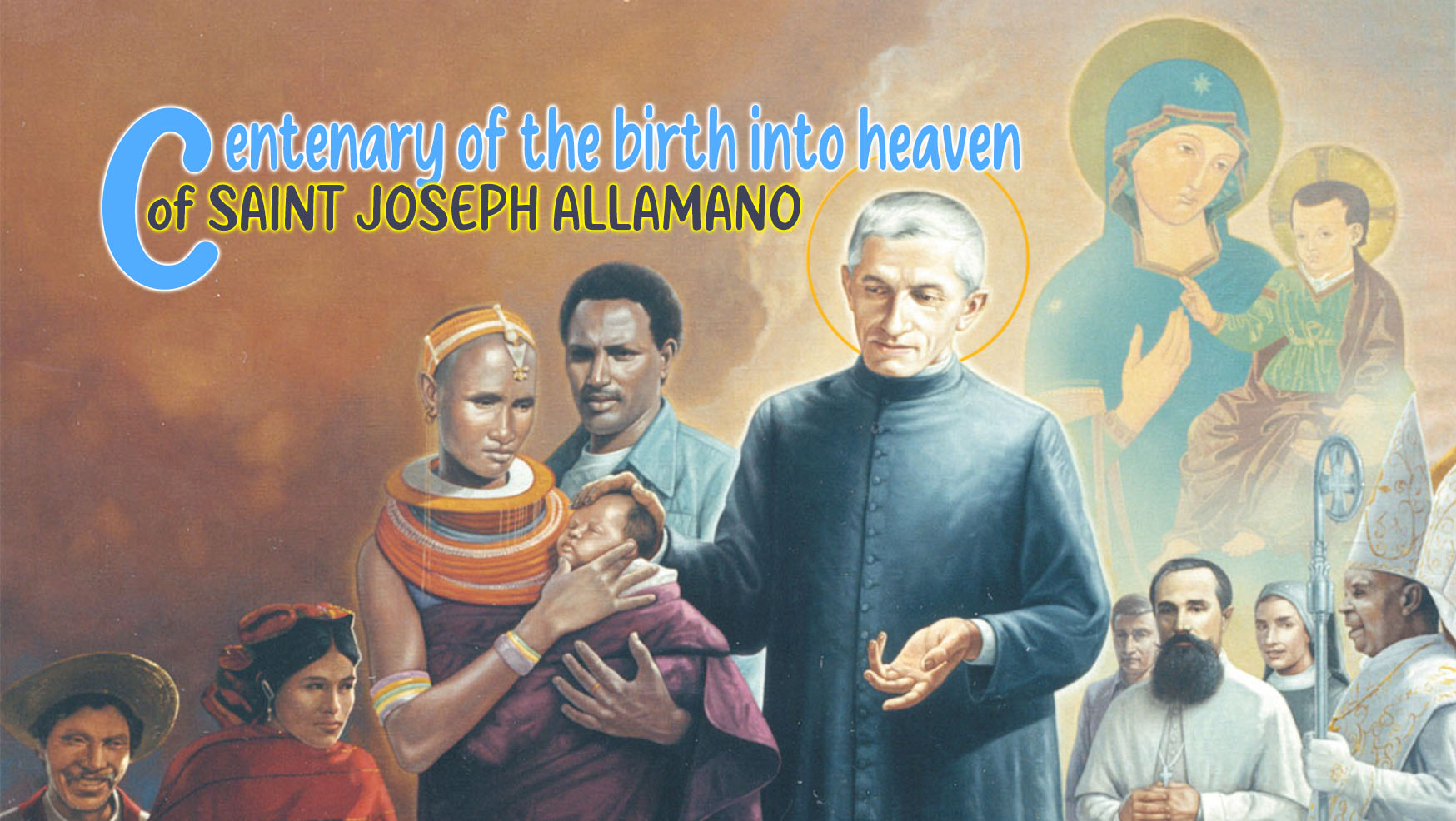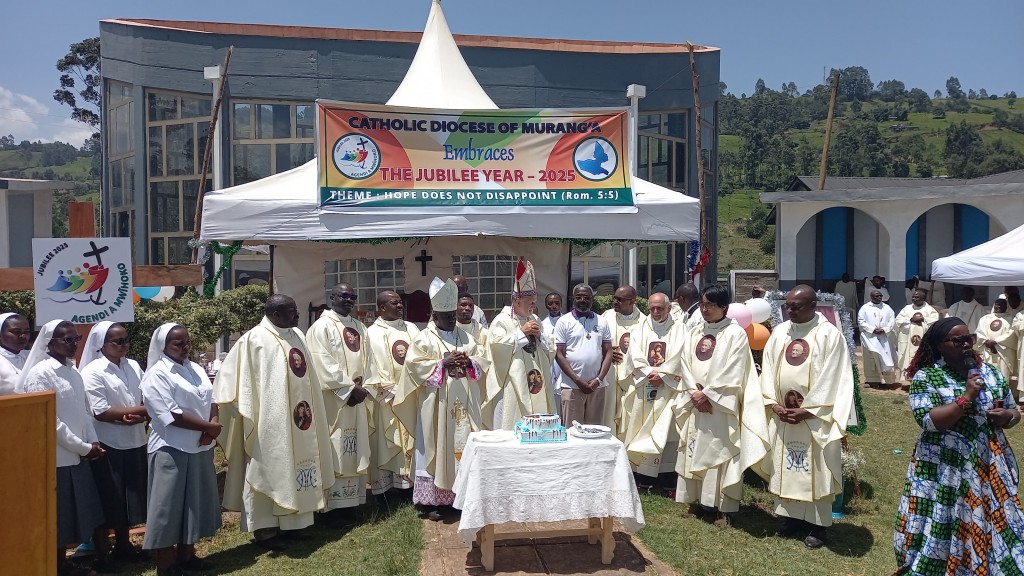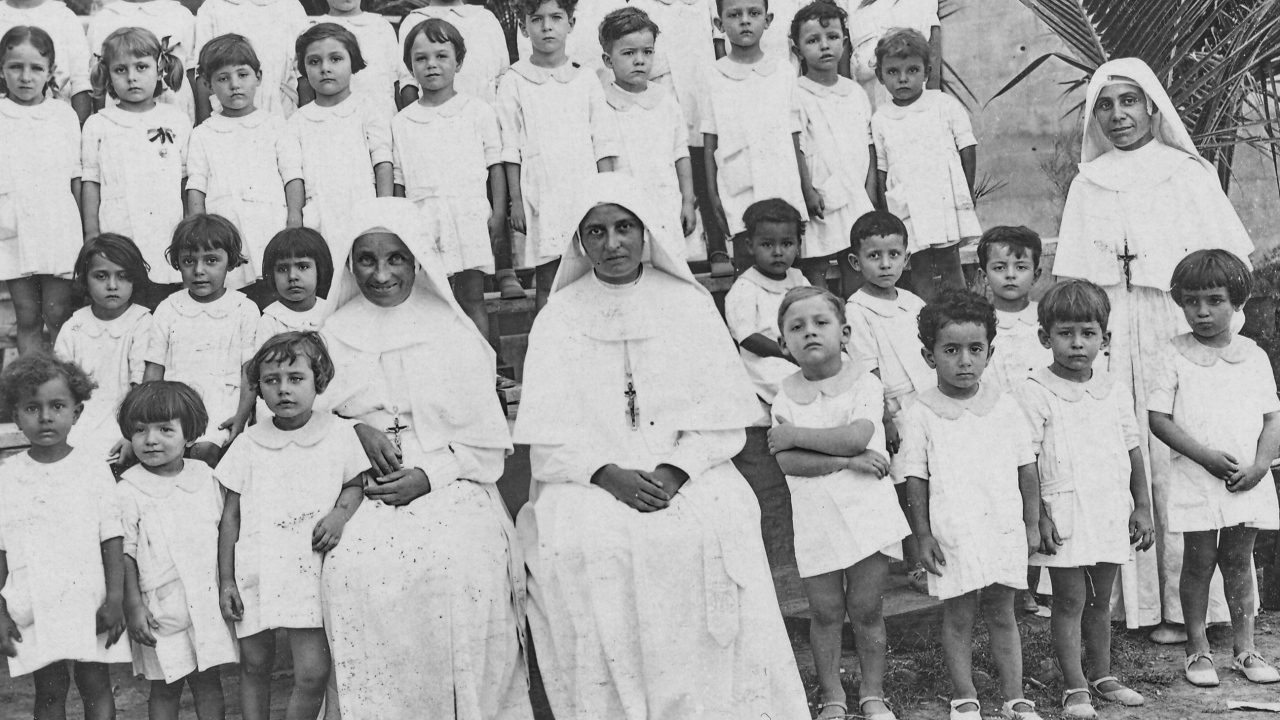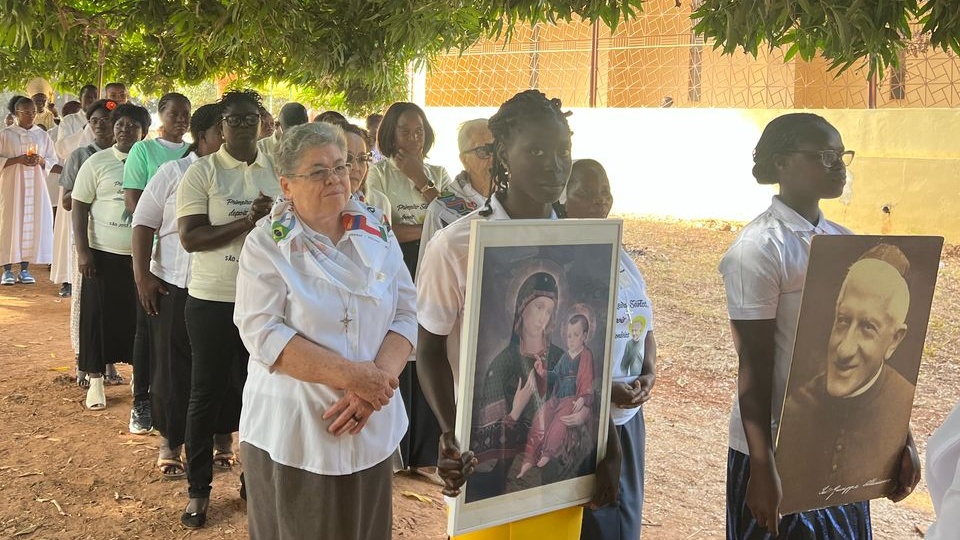Towards the Centenary of the birth into Heaven of Saint Joseph Allamano, a new reflection about Saint Joseph Allamano and the Eucharist.
At the hour when he returns to the Father, Jesus chooses to remain in tangible communion with his own through the Eucharistic Bread, blessed and broken, food on the journey towards the Father. “At the culmination of his life, he … breaks himself apart at the Passover supper with the disciples. In this way Jesus shows us that the aim of life lies in self-giving, that the greatest thing is to serve. And today once more we find the greatness of God in a piece of Bread, in a fragility that overflows with love, that overflows with sharing.”
St. Joseph Allamano and the Eucharist
The experience of this unconditional love of Jesus does not leave us indifferent but warms the heart and moves it irresistibly to respond with the same love and also to become bread broken for humanity loved by God. It is the experience of St. Joseph Allamano, a love that burns inside and always sets him on a journey, with extraordinary creativity and energy, leading him to initiatives that transcend his own human possibilities, such as that of the foundation of two missionary institutes in his adulthood, accompanying them until the end of his life, so much so that he wrote in his last will: “I have lived my many years for your sake; I have given my possessions, my health and my life for you and I hope that after my death I will be your protector in heaven.”
His great loves, the Eucharist and the Consolata, inspired his being and his actions. This experience does not remain hidden in the folds of his heart; he knows how to transmit it as a teacher and spiritual guide, as a father and formator, inspiring yesterday and today paths of holiness.
“Let each one think of the voice of God calling him to become a saint. Every day at Communion or when you visit the Blessed Sacrament renew your determination and say to yourself: I want to become a saint, I want to become a great saint, I want to become a saint immediately. I can do it, I ought to do it, I will to do it.” And again: “If you are devoted to Jesus in the Blessed Sacrament you cannot fail to be holy.”
The relationship with Jesus in the Eucharist is nourished through constant communion, every day: “Mass, Communion and the visit to the Blessed Sacrament: these are our three loves!” A relationship that digs into and gradually leads the person into a process of transformation in Christ and even to have the likeness of Jesus: “Jesus says to the apostles: ‘He who sees me also sees the Father’ (Jn 14:9), and you in turn can say: he who sees me sees Jesus!” This transformation took place in Joseph Allamano’s own life, in the way he was, in his doing, in his relationships; even his physical appearance seemed to be permeated by this communion with Christ, as attested by many testimonies of those who saw him celebrating Mass or praying in the choir, of which we report one:
Canon D. Turco:
“When I was a cleric and he was already a priest, I often accompanied him in the visit to the Blessed Sacrament, which was done in the parish, in the evening. I can say this: that it felt like a fragrance of faith. I don’t know how to express myself otherwise. Such was his demeanour before the holy tabernacle. I can add that I learned from him, so to speak, the living faith and love for the Eucharist. He seemed to see Jesus. After all, he himself confided it to me several times: that he had so much love for Jesus in the Blessed Sacrament.”
Love for Jesus in the Eucharist found its expression in self-giving, tireless in acting without losing intimate communion with Jesus. His day revolved around Jesus, He was truly the centre, he left Him and returned to Him constantly. The Eucharistic day was divided into a time of preparation for the meeting in the Eucharistic celebration and then of thanksgiving. In this way, He extended His presence throughout the day.
The same love inspired his missionary commitment. On several occasions he expressed the joy of making Jesus present in places where He was not yet known and loved:
“How pleased I am that through us God is multiplying the number of Tabernacles in the world. So many new Tabernacles! They are the focus of love for us and mercy for the people. How blessed we are to have already so many in our missions. I believe, nay I am convinced, that they bring down blessings on those lands.”
“I want you to be Sacramentins“
It still echoes today, loud and clear, that “I want you Sacramentins” of Joseph Allamano with charismatic intensity to become authentic missionaries and missionary sisters. We are in love with the Eucharist, the centre around which life flows, is filled with meaning, motivates self-giving and makes us a pleasing offering to the Father, bread broken and wine poured out.
Let us transmit this love of the Eucharist to the people we approach. We have a beautiful example in Carlo Acutis, the young man who will be proclaimed a saint on April 27, who said: “The Eucharist is my highway to heaven.”
The love experienced in the relationship with Jesus in the Eucharist leaves no room for selfish withdrawals. We must not and cannot live for ourselves, closed in horizons that are too narrow and defensive, centred on ourselves, understood in statements of our own points of view and interests. These attitudes betray the “spirit”, the charism of Joseph Allamano, who wants us to be people of broad horizons, big hearts, attentive to the needs of others, who do good well and in a superlative way, “the most” in everything.
Pope Francis reminds us of this:
“The Eucharist is an effective medicine for these closures. The Bread of Life, in fact, heals rigidity and transforms it into docility. The Eucharist heals because it unites with Jesus: it makes us assimilate his way of living, his ability to break himself apart and give himself to brothers and sisters, to respond to evil with good. He gives us the courage to go outside of ourselves and bend down with love toward the fragility of others. As God does with us.”
For Personal Reflection
This I want you to be, chap. 8. ( ► This I want you to be)
Pope Francis, Angelus, 6 June 2021. ( ► Angelus)
- Who is Jesus in the Eucharist for me? How do I express in my life and in my day the centrality of Jesus in the Eucharistic mystery?
- How does the encounter with Jesus in the Eucharist transform my life and do I also become bread broken and wine poured out?








